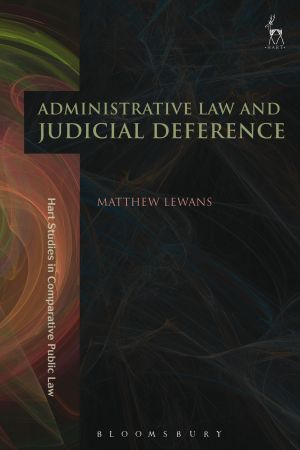
In recent years, the question whether judges should defer to administrative decisions has attracted considerable interest amongst public lawyers throughout the common law world. This book examines how the common law of judicial review has responded to the development of the administrative state in three different common law jurisdictions—the United Kingdom, the United States of America, and Canada—over the past one hundred years.
This comparison demonstrates that the idea of judicial deference is a valuable feature of modern administrative law, because it gives lawyers and judges practical guidance on how to negotiate the constitutional tension between the democratic legitimacy of the administrative state and the judicial role in maintaining the rule of law.